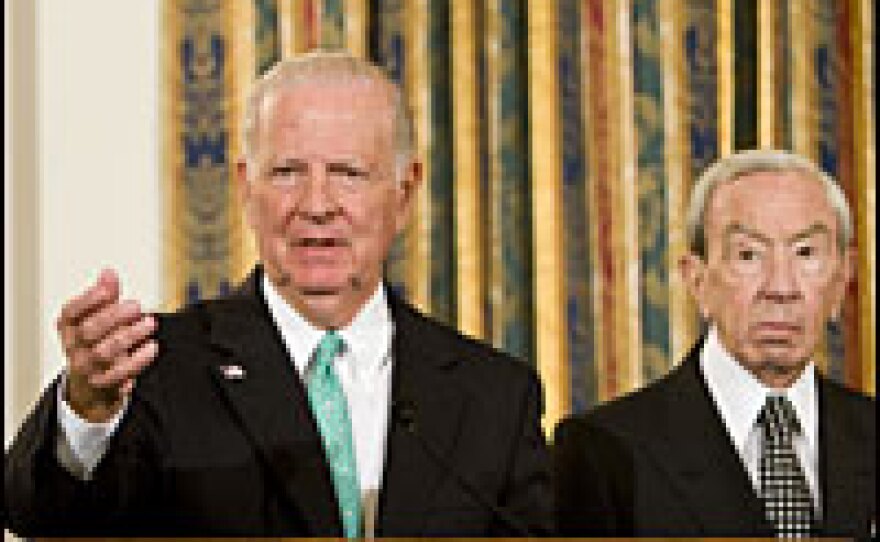The president should be required to consult with Congress before taking the nation to war, according to a bipartisan panel led by two former secretaries of state. Congress, in turn, should vote on any military action.
The National War Powers Commission, led by former Secretaries of State James Baker and Warren Christopher, seeks to scrap the War Powers Act of 1973, which it called impractical and ineffective. In a report released Tuesday, the commission proposes replacing the act with legislation that fosters cooperation between the White House and Congress and lays out a procedure the president must follow before sending troops into battle.
The proposed legislation, the War Powers Consultation Act, would set up a special joint congressional committee made up of House and Senate leaders, as well as the chairmen and ranking members of key committees. The White House would have to consult with that group before sending troops into any "significant armed conflict." Congress would then have 30 days to either approve or disapprove the action.
The measure also would establish a permanent, bipartisan staff that would have access to all relevant intelligence and national security information.
"What we aim to do with this statute is to create a process that will encourage the two branches to cooperate and consult in a way that is both practical and true to the spirit of the Constitution," said Baker, who served in the first Bush administration and co-chaired the 2006 Iraq Study Group.
Christopher, secretary of state during Bill Clinton's first term, says the commission wanted to bring "better judgments" about going to war.
"So that when the president decides he wants to go to war he has to take into account the independent views of the members of Congress," Christopher said, "and not just any members of Congress, but this selective group of the leaders of both parties of Congress and of both House and Senate."
The War Powers Act of 1973, prompted by the U.S. experience in Vietnam, was a congressional attempt to strengthen the vague balance of powers laid out in the Constitution. But, according to the panel, no president has recognized its constitutionality and Congress has never pressed the issue.
Baker said the War Powers Act never resolved the question of how a U.S. president and Congress should approach war decisions.
"The statute as written cannot be implemented, hasn't been implemented and ends up triggering a continuing debate between the executive branch and the legislative branch," he said. "It's not effective at best; it's unconstitutional at worst. It's a bad law that ought to be replaced with a good law, something that would work."
The proposed legislation, in theory, would not favor either branch of government but rather lay out a more efficient procedure by which the president and Congress could work together.
Whether it would make much of a difference is a matter of debate. The U.S. Constitution ambiguously says Congress has the right to declare war, but it makes the president the commander in chief.
Presidential historian Douglas Brinkley, who advised the commission, notes that the war powers issue has been debated in Washington since the time of Thomas Jefferson.
"Jefferson asserted the right to commit combat troops for the national interest whenever the chief executive, the president, wanted to," he said. "Congress has always felt it needed to be consulted."
Copyright 2022 NPR. To see more, visit https://www.npr.org. 9(MDAzMjM2NDYzMDEyMzc1Njk5NjAxNzY3OQ001))







